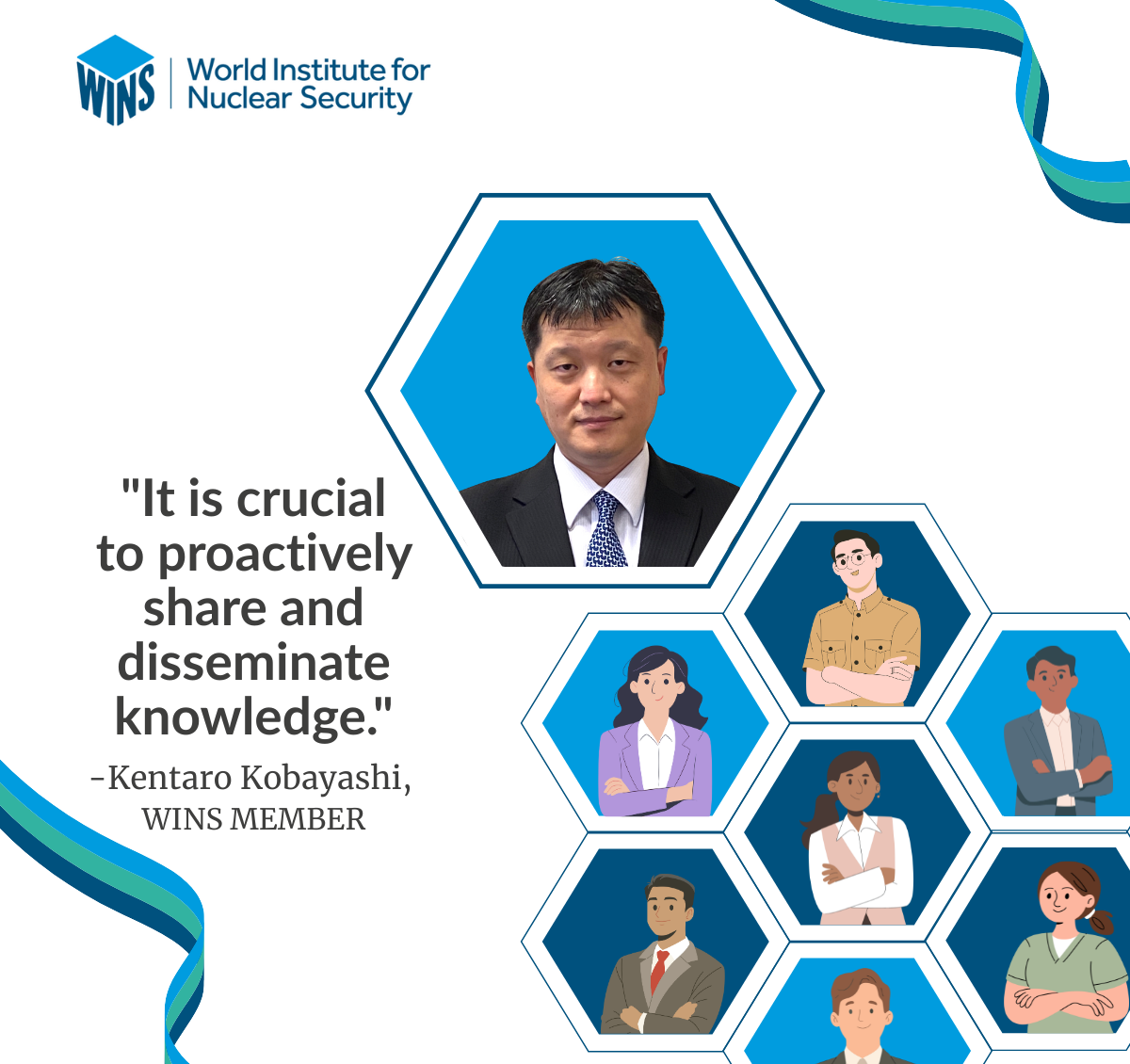WINS’ 10,000 members represent more than a number — it’s a global community of passionate advocates for competence and continuous improvement in nuclear security.
WINS Members are located in more than 170 countries and work in a variety of fields, but they share one purpose: strengthening and sustaining nuclear security. To celebrate the 10,000 member milestone, we’re spotlighting some of our recent new members.
Kentaro Kobayashi is a manager at the Japan Atomic Energy Insurance Pool. He spoke to us about the importance of international knowledge sharing, the role of best practices and strong nuclear security culture as an enabler of global development.
How does nuclear security intersect with your day-to-day risk assessment and policy development?
Nuclear security measures serve as a fundamental basis for underwriting decisions. They are one of the key criteria used in assessing insurance eligibility and calculating premiums.
“It is essential that countries share a common level of knowledge and expertise in nuclear security.”
Why is international knowledge sharing essential in the field of nuclear insurance and security?
In nuclear insurance underwriting, it is essential that countries share a common level of knowledge and expertise in nuclear security. This alignment enables consistent risk assessment and facilitates stable underwriting across the world.
What role do shared standards and best practices play in your work?
It also provides a compelling rationale for promoting security enhancement proposals to nuclear operators.
“Strong nuclear security culture is essential for the stable and sustainable development of the global community.”
How do you see the role of insurance evolving as the nuclear sector modernises?
Insurance plays a vital role in supporting innovation in emerging fields by offering economic risk hedging. Additionally, by consolidating and sharing insights, it contributes to accident prevention and mitigation of loss escalation.
What advice would you give to young professionals or other stakeholders looking to understand the importance of insurance in the broader nuclear security sector?
To avoid situations where underwriting becomes impossible, it is crucial to proactively share and disseminate knowledge about risks from the perspective of accident prevention.
What does a strong nuclear security culture look like to you, and how can insurers help promote it?
We believe strong nuclear security culture is essential for the stable and sustainable development of the global community. Insurance companies can contribute to its dissemination by communicating this importance to frontline nuclear operators through surveys and assessments.
